Learning and knowledge sharing are fundamental to the LHSS Project. We invite you to search LHSS knowledge products and resources for the latest approaches, insights, and learning in the field of integrated health systems strengthening.
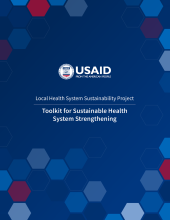
This toolkit provides comprehensive guidance for development partners and implementers to design, plan, implement, monitor, evaluate, and adapt health system strengthening (HSS) investments that lead to sustainable performance improvements.
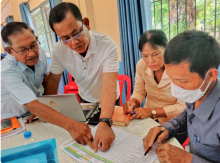
A new monitoring and evaluation platform provides a unified system for multiple social protection programs to connect eligible clients with available services, assess performance identify gaps, and plan improvements based on clear evidence.
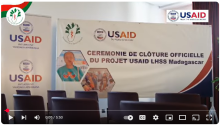
This video features highlights from the End of Activity event for LHSS Madagascar held in December 2024.
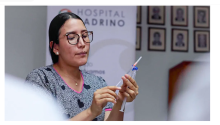
As part of the Mentor Hospital strategy, Dr. Aura María Salazar, a pediatrician, trained doctors at Valle del Lili and other hospitals on newborn and childbirth skills, such as neonatal resuscitation and the safe transfer of newborns.
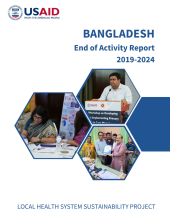
The LHSS Project's End of Activity Report in Bangladesh details the project's work with strengthening local government capacity to plan, resource, manage, and monitor primary health care services.
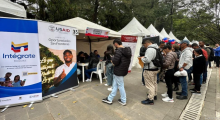
In 2024, seventeen 'A Tu Servicio' fairs were held in 13 locations, achieving more than 62,000 citizen interactions.
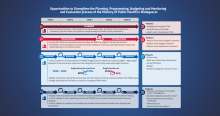
This visualization developed in partnership with the Ministry of Public Health in Madagascar helped them Identify opportunities to strengthen processes and improve health sector performance.
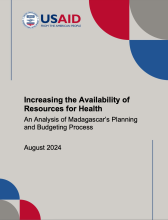
This report identifies challenges within the Planning, Programming, Budgeting, and Monitoring and Evaluation (PPBME) process, emphasizing the need for improved public financial management to maximize existing health resources and support the country's goal of universal health coverage.
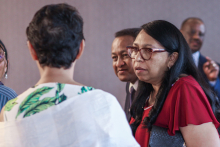
LHSS Madagascar recently hosted its closeout event, marking the end of one chapter and the beginning of many new opportunities. The event brought together diverse voices—government leaders, partners, and local stakeholders—to celebrate achievements, learn from the past, and plan for continued resilience in Madagascar’s health systems.
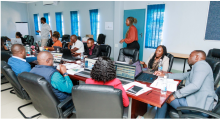
Namibia has made great progress in its long journey to end HIV as a public health threat. USAID and PEPFAR are helping Namibia achieve and maintain epidemic control, in part, by supporting the government in strengthening its health systems that support the HIV response.
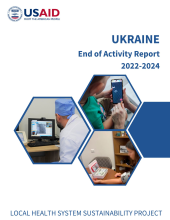
This report details the Activity's objectives and achievements over three years, focusing on enhancing telemedicine governance and access to essential health services in Ukraine amidst ongoing conflict.
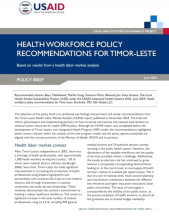
This policy brief synthesizes key findings and offers recommendations from the Timor-Leste Health Labor Market Analysis (HLMA) report published in November 2023. The brief will inform policymakers and implementing partners on how to devise sub-national and national interventions to advance humane resources for health policy.
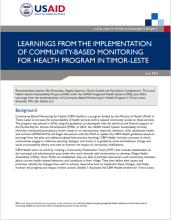
Findings are based on participatory action research on reproductive, maternal, newborn, child, adolescent health, and nutrition (RMNCAHN) that LHSS conducted in 2022. It revealed the necessity to update the CBM Health guidelines based on learnings from the pilot and additional global best practice learnings. CBM Health involves a process in which communities engage in collective planning, dialogue, and action. It is guided by social and behavior change and social accountability theory and used to monitor the impact of community mobilization.
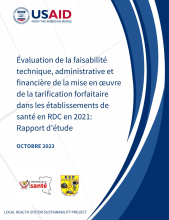
This report examines the technical, administrative, and financial aspects of implementing TAFO in various health zones and facilities across five provinces in the DRC.
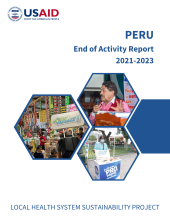
LHSS aimed to strengthen health systems in Peru, particularly in response to challenges such as the influx of Venezuelan migrants, the COVID-19 pandemic, and health disparities faced by vulnerable populations including LGBTQ individuals. This report details interventions and also provides recommendations for future strategies.
